Uncategorized
-
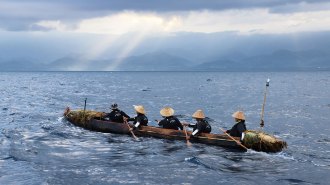 Humans
HumansAncient humans may have deliberately voyaged to Japan’s Ryukyu Islands
Satellite-tracked buoys suggest that long ago, a remote Japanese archipelago was reached by explorers on purpose, not accidentally.
-
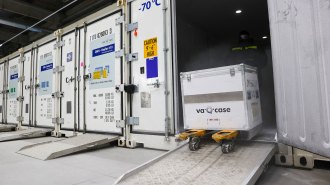 Health & Medicine
Health & MedicineThe ‘last mile’ for COVID-19 vaccines could be the biggest challenge yet
The need for cold storage and booster shots could create problems for distributing coronavirus vaccines to nearly everyone in the world.
-
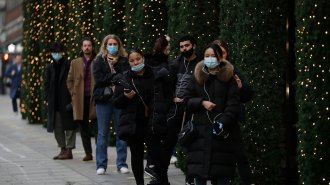 Health & Medicine
Health & MedicineThe U.K. is the first country to authorize a fully tested COVID-19 vaccine
Pfizer will deliver the first of 40 million doses of its coronavirus vaccine promised to the United Kingdom in the coming days.
-
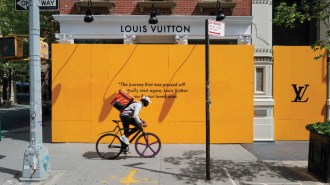 Science & Society
Science & SocietyA COVID-19 time capsule captures pandemic moments for future researchers
Social scientists chose photos, charts and even a tweet to help future researchers understand the pandemic.
By Sujata Gupta -
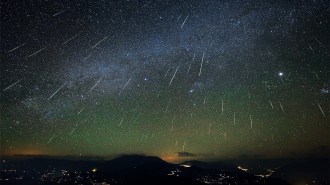 Space
SpaceDecember’s stunning Geminid meteor shower is born from a humble asteroid
Most meteor showers arise from comets, but the robust Geminid shower comes from an asteroid, Phaethon, which scientists are still trying to figure out.
By Ken Croswell -
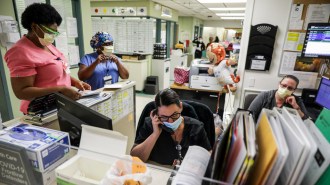 Health & Medicine
Health & MedicineHealth care workers and long-term care residents should get COVID-19 vaccines first
With an initial 40 million doses of the vaccines, enough for 20 million people, anticipated by year-end, health officials are setting priorities.
-
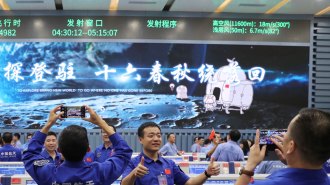 Planetary Science
Planetary ScienceChina is about to collect the first moon rocks since the 1970s
The robotic Chang’e-5 mission, which landed on an unexplored region of the moon December 1, aims to gather samples and return them to Earth.
-
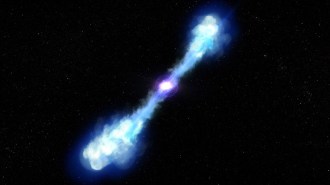 Space
SpaceAstronomers spotted colliding neutron stars that may have formed a magnetar
Astronomers may have witnessed the formation of a kind of rapidly spinning, extremely magnetized stellar corpse for the first time.
-
 Health & Medicine
Health & MedicineLong-lasting shots work better than daily pills to prevent HIV in at-risk women
A more discreet HIV prevention method — a shot once every eight weeks —could help to boost use in women at risk.
-
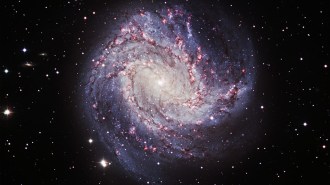 Space
SpaceRunaway stars may create the mysterious ultraviolet glow around some galaxies
Hot blue stars kicked out of their birthplace can travel thousands of light-years to their galaxies’ hinterlands, new computer simulations show.
By Ken Croswell -
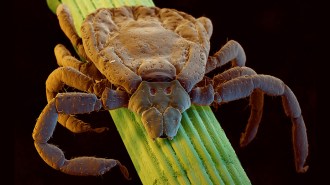 Life
LifeDog ticks may get more of a taste for human blood as the climate changes
At high temperatures, some brown dog ticks that can carry the bacteria that causes Rocky Mountain spotted fever seem to prefer humans over dogs.
-
